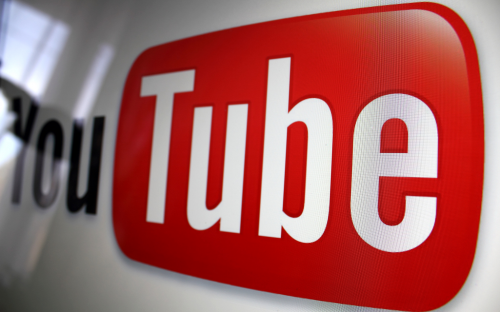The emergence of new players like Netflix and Hulu herald the death of TV, while advertising spend shifts to social media sites such as Facebook and Twitter and broadband and telecoms providers invest in streaming services.
This has vast implications for careers and for the future business leaders who will enter a fragmented media sector forever changed by technology.
“Digital and video are here to stay as content is consumed via mobile devices and consumers want intuitive, easy to use platforms,” says Eric Young, assistant dean of the MBA Career Centre at Georgetown McDonough School of Business.
Business students are hired on both the content and disruption sides to support distribution channels and partnerships, he says. “MBAs are particularly sought out for product management positions in support of digital properties, content and channels.”
The world of advertising too has undergone a sea change as the role of data analytics grows and helps marketers to target consumers more accurately.
The proliferation of digital providers from Comcast to the BBC’s iPlayer is allowing advertisers to beam the right message to the right person at the right time. Cross-device targeting is the dream.
“Companies now need marketing managers who are comfortable with data analytics,” says Anindya Ghose, professor of marketing at NYU’s Stern School of Business.
Technology is the heart beat of the new advertising landscape. IDC, the market research group, predicts chief marketing officers will boost the amount they spend on marketing tech to around $32 billion in 2018 from $20 billion last year.
Led by Facebook, the network with 1.4 billion monthly active users, social media platforms are soaking up a rising share of advertising budgets.
A recent survey of marketers by cloud and enterprise software group Salesforce found that 70% plan to increase social media advertising, including on mobile, on platforms such as Instagram and Snapchat.
“Understanding content retrieval and delivery systems is gaining increased importance with the continued development of digital media,” says Professor John Fortunato, chair for media management at Fordham’s Gabelli School of Business.
Increasingly, marketing executives must blend technical, creative and business acumen.
“I don’t think they need to be technically qualified, but they need to understand the impact of digital,” says Frances Illingworth, global recruitment director at WPP, the world’s largest advertising group by sales.
She says MBAs can bring more experience from other businesses and often have acquired more commercial skill than other graduates. “We’re open to applications from all the business schools,” Frances says.
Data are becoming an increasingly important part of how WPP looks at the customer journey, she says. Forty percent of marketers surveyed recently by research firm Forrester said they would spend more on data analytics.
“Media is more and more about bringing analytics and creativity together and using the analysis to drive decisions,” says Stephen Pidgeon, associate director for career development at Tuck School of Business.
“The old days of a cigar-chewing media mogul making all of the big decisions based on gut instinct are long gone,” he says.
The evolution of legacy broadcasters – who fear the migration of viewers to digital platforms – into providers of online streaming services, has brought a need for both commercial and creative solutions to the content puzzle.
“This is an area where MBA students are particularly well set to succeed,” says Stephen. He points to media groups like HBO and Sling, the online streaming start-up, as companies where MBA skills are valued. “Streaming services are definitely a hot area for MBAs,” he says.
The traditional distinction between content producers and distributors is increasingly blurred. Tech companies represent fresh competition for broadcasters.
Time Warner’s HBO will this year launch a subscription service for non-cable and satellite users. Amazon is producing original films to show and on its Prime video service. A European expansion last year took on-demand streaming service Netflix to 50 countries.
“Students who understand the digital ecosystem and who have technical skills are much in demand,” says Professor Samuel Craig, director of NYU Stern’s Entertainment, Media and Technology MBA track.
Telecoms companies, which are at risk of being left in the dust as technology groups mint fortunes on their infrastructure, are rising to the digital challenge.
They are slowly becoming providers of services and content including TV and music, as the introduction of services like iTunes and Google Play have disrupted their link with consumers.
Prof Samuel at NYU says this will both widen and shift employment opportunities. But he adds: “I don’t see dramatic overall growth in employment, just a shift in where the opportunities are and who can take advantage of them.”
The music industry has been the laggard of the so-called “creative economy” but disruptive streaming services like those offered by Swedish upstart Spotify point to new opportunities.
“As the music industry shrinks, other segments within the creative industries are growing and jobs are being created,” says Helen Gammons, program director of the MBA for Music & Creative Industries at Henley Business School.
She says Spotify can’t keep up with the demands of its rapid growth and that the company is a significant employer of people in central London – of data specialists and online marketers in particular.
Spotify is slated to be launching a video-streaming service to compliment its music platform as the battle for dominance in digital content with the likes of Deezer, a rival music streaming platform, heats up.
YouTube is working on a paid subscription service and Apple is launching a streaming platform in June, after its purchase last year of Beats from hip-hop artist Dr Dre. “Music is pioneering a significant socio-cultural trend,” says Tim Holmes, senior lecturer at Cardiff University’s School of Journalism, Media and Cultural Studies.
He says the biggest impact has been on careers. But business students must understand the fast-changing and continuously evolving media industry to take advantage of new opportunity.
Yet in a hyper-connected environment in which digital is king, media companies are at risk of losing the very creativity which has captivated audiences and led to their success.
“Tools are not creative ideas; they are tools,” says Henley’s Helen. “To have a truly creative core to your business requires great leadership,” she adds.
Research also suggests that there are limitations to how far marketers should take targeting with user data. “In itself this is just raw information – the crucial thing is to be able to take that information and use it to shape creative content,” says Tim at Cardiff.
Prof Samuel at NYU suggests that, inevitably, the media market will end up being a battleground for the war between the suits and the creatives.
Coupled with the fundamental viewing shift that is disrupting traditional media companies and giving rise to new players, it is increasingly clear that great management will be needed as the creative sectors map out their new digital worlds.
“They are the future – the ones who are helping to reshape the entertainment and media business,” adds Prof Samuel.
RECAPTHA :
3e
b3
8e
2c








